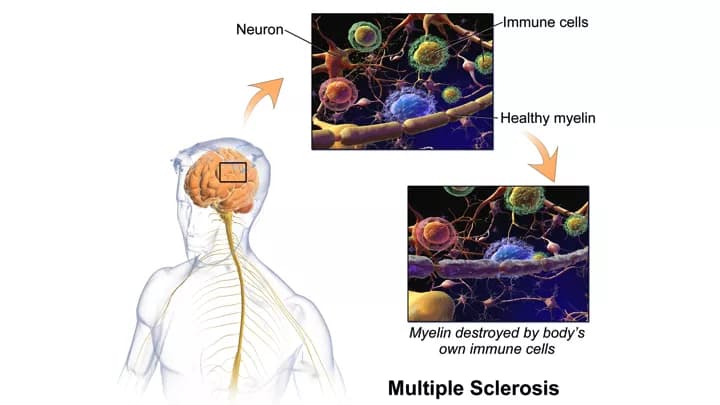
Eating Fish May Be Tied To A Reduced Risk Of MS
Eating fish at least once a week or eating fish one to three times per month in addition to taking daily fish oil supplements may be associated with a reduced risk of multiple sclerosis (MS), according to a preliminary study released today that will be presented at the American Academy of Neurology's 70th Annual Meeting in Los Angeles, April 21 to 27, 2018. These findings suggest that the omega-3 fatty acids found in fish may be associated with lowering the risk of developing MS.
Multiple sclerosis is a disease of the central nervous system that affects communication between the brain and other parts of the body. With MS, the body's immune system attacks myelin, the fatty white substance that insulates and protects the nerves. This disrupts the signals between the brain and the rest of the body. Symptoms of MS may include fatigue, numbness, tingling or difficulty walking. The first episode of MS symptoms, lasting at least 24 hours, is known as clinically isolated syndrome. There is no cure for MS.
"Consuming fish that contain omega-3 fatty acids has been shown to have a variety of health benefits, so we wanted to see if this simple lifestyle modification, regularly eating fish and taking fish oil supplements, could reduce the risk of MS," said study author Annette Langer-Gould, MD, PhD, of Kaiser Permanente Southern California in Pasadena, Calif., and a member of the American Academy of Neurology.
For this study, researchers examined the diets of 1,153 people with an average age of 36 from a variety of backgrounds, about half of whom had been diagnosed with MS or clinically isolated syndrome.
Participants were asked about how much fish they regularly ate. High fish intake was defined as either eating one serving of fish per week or eating one to three servings per month in addition to taking daily fish oil supplements. Low intake was defined as less than one serving of fish per month and no fish oil supplements. Examples of fish consumed by study participants include shrimp, salmon and tuna.
The study found that high fish intake was associated with a 45 percent reduced risk of MS or clinically isolated syndrome when compared with those who ate fish less than once a month and did not take fish oil supplements. A total of 180 of those with MS had high fish intake compared to 251 of the healthy controls.
The study also looked at 13 genetic variations in a human gene cluster that regulates fatty acid levels. Researchers found two of the 13 genetic variations examined were associated with a lower risk of MS, even after accounting for the higher fish intake. This may mean that some people may have a genetic advantage when it comes to regulating fatty acid levels.
While the study suggests that omega-3 fatty acids, and how they are processed by the body, may play an important role in reducing MS risk, Langer-Gould emphasizes that it simply shows an association and not cause and effect. More research is needed to confirm the findings and to examine how omega-3 fatty acids may affect inflammation, metabolism and nerve function.
Fish such as salmon, sardines, lake trout and albacore tuna are generally recommended as good sources of omega-3 fatty acids.
Related Articles
Test Your Knowledge
Asked by users
Related Centers
Related Specialties
Related Physicians
Related Procedures
Related Resources
Join DoveHubs
and connect with fellow professionals

0 Comments
Please log in to post a comment.